Ed Gorman's Blog, page 127
June 6, 2013
From Warner Home Video
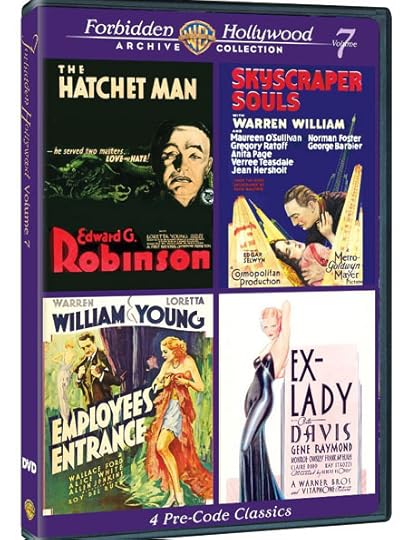
Ed here: that fine site Cinema Retro covers the release of the four movies pictured above.
I've recently watched both Skyscraper Souls and Employees Entrance and the overt sexuality
of them is stunning. Employees Entrance gets away with Warren playing and anti-hero and Loretta being a woman who has been around. And around. The biting take on big business coupled with
sexual themes demonstrate what Hwood could have done without the Code turning most films timid.
Order from Amazon.
Cinema Retro:
The Warner Archive has released four more pre-code gems as their latest entry in their FORBIDDEN HOLLYWOOD series (Volume 7). These films are deliciously delightful to view. When this series was started by M-G-M/UA video in the 1990s, I collected them on laser disc. When they went out-of-print I paid some premium prices to get used copies. I was thrilled when Warner Home Video started releasing them and now that Warner Archive has continued to do so, I’m happy to know that these otherwise neglected films will continue to be available through the burn-to-order market. This being Volume 7, one can see that there is a market for this genre, and I look forward to further entries in this valuable series. The bulk of the films released thus far under the FORBIDDEN HOLLYWOOD series have been from the WARNER BROS. & FIRST NATIONAL STUDIOS and nobody did pre-code films any better. Cagney, Robinson, Blondell, et. al. sizzled in these gritty, ripped-from-the-headlines films. There are the occasional entries from M-G-M that came close, but pre-code was WARNER BROS./FIRST NATIONAL’S stock in trade. The films in this volume are wonderful examples.
Published on June 06, 2013 14:45
Bob Randisi wins award for literary excellence
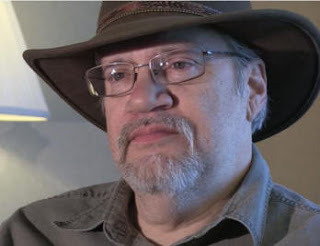 Ed here: As many if not most of you know Robert J. Randisiis as well known is westerns circles as he is in the mystery world.Here's the post on his latest honor"
Ed here: As many if not most of you know Robert J. Randisiis as well known is westerns circles as he is in the mystery world.Here's the post on his latest honor"Heads up, everyone! Take a look at the latest winner for the PRESIDENT'S LITERARY EXCELLENCE AWARD from THE READWEST FOUNDATION, INC.! Out very own ROBERT J. RANDISI!Here is a little about the awards and how to submit a nomination, taken from their website, and below that, a short write-up about Bob and the link to his video interview--you won't want to miss this!
Congratulations to you, Bob, and here's to many, many more wonderful books from you.
ReadWest Awards for Literary Excellence
The ReadWest Foundation, Inc., presents four annual awards: the President's Award, which recognizes a major career contribution to excellence in Western literature; and three (3) Featured Author awards, which recognizes authors with current publications that clearly represent excellence in Western literature. Featured Author awards are given to authors of fiction and nonfiction.
The award winners are selected by the ReadWest Foundation officers and board of directors, and are announced in the summer of the award year. Nominations can be submitted to contact@readwestfoundation.org and must be received by December 31 prior to the year of publication of the author's next work.
2013 President's Award--Robert J. Randisi
Robert J. Randisi is the author of over 600 novels, many of them Westerns, and is the creator of the popular Gunsmith series of adult Western novels. More than 15 million copies of that series alone have sold. One of the most successful Western writers of our time, Randisi has written a book a month since 1982. All of these accomplishments made him an easy pick for this year's ReadWest President's Award.
http://www.readwestfoundation.org/2013_Interviews.html
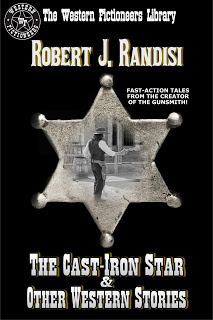 Western Fictioneers is proud to announce that a collection of western stories by Robert J. Randisi is now available. THE CAST-IRON STAR AND OTHER WESTERN STORIES brings together the finest tales of legendary Western author Robert J. Randisi, creator of The Gunsmith series. As one of the most prolific Western writers of all time, Randisi brings his trademark fast pace and flair for action to the stories in this volume, which include "The Cast-Iron Star", "The Story", "Three-Handed Winter", "Dancing on Air", "A Tall Man Hangs From a Short Rope", "The Knights of Liberty", "A Bad End", "Blood Trail to Dodge", and the original, novella-length version of "The Ghost With Blue Eyes". THE CAST-IRON STAR AND OTHER WESTERN STORIESis Western adventure at its best.
Western Fictioneers is proud to announce that a collection of western stories by Robert J. Randisi is now available. THE CAST-IRON STAR AND OTHER WESTERN STORIES brings together the finest tales of legendary Western author Robert J. Randisi, creator of The Gunsmith series. As one of the most prolific Western writers of all time, Randisi brings his trademark fast pace and flair for action to the stories in this volume, which include "The Cast-Iron Star", "The Story", "Three-Handed Winter", "Dancing on Air", "A Tall Man Hangs From a Short Rope", "The Knights of Liberty", "A Bad End", "Blood Trail to Dodge", and the original, novella-length version of "The Ghost With Blue Eyes". THE CAST-IRON STAR AND OTHER WESTERN STORIESis Western adventure at its best.  The Cast-Iron Star and Other Western...Robert J. RandisiBest Price $12.34
The Cast-Iron Star and Other Western...Robert J. RandisiBest Price $12.34or Buy New $12.34Privacy Inform
Published on June 06, 2013 04:54
June 5, 2013
SF/Fantasy Giant Jack Vance was also Edgar-winning mystery author
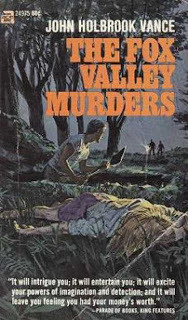
Ed here: A few days ago Do Some Damage ran this informative piece on Jack Vance's mystery career. Here's writer Brian Lindenmuth:
Monday, June 3, 2013
Jack Vance's contributions to the mystery genre
or Jack Vance was an Edgar winner too!
A giant of American genre fiction, Jack Vance, has died.
Vance is well known for his science fiction and fantasy works. He arguably invented the dying earth sub-genre and influenced generations of science fantasy writers, without Vance you don't have Gene Wolfe for example. The style of magic he developed in his fiction would be one of the prime influences on Advanced Dungeons & Dragons (pdf) (gamers began to refer to it as Vancian Magic).
He was an accomplished musician, a merchant marine, a traveler. You name it and he did it. And did it damn well too.
So Vance's SF/F bonafides are solid. But the man won an Edgar for Best First Novel in 1962 dammit and deserves to be recognized by this community too. That's what I want to briefly focus on today, Jack Vance's contributions to the mystery genre.
for the rest go here:http://dosomedamage.blogspot.com/2013...
Published on June 05, 2013 12:44
June 4, 2013
The Trojan Colt by Mike Resnick; Peter Winkler
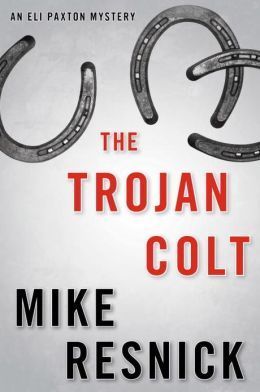
If there's a genre (or even-sub-genre) that Mike Resnick hasn't mastered I'm not aware of it. From science fiction to fantasy to adventure to western to humor to Sherlockiana...and on and on. And I do mean mastered.
Sometimes writers working in unfamiliar genres dash off work that is longer on mere competence than inspiration.
THE TROJAN COLT is such a savvy, exciting, page-turning read you feel you're in the hands of a long-time and much heralded mystery brand name.
In this adventure private eye Eli Paxton is hired to guard a horse whose owner hopes to make big money on at auction. Two grooms have disappeared and Tyrone, the horse, is in danger. But then so, suddenly, is Eli Paxton. Someone hopes to dispose of him as well.
Resnick does a fine, vivid job of making the horse world not only real but fascinating. The same with his cast. In addition to being full realized people they are convincingly portrayed as creatures of stables, jockeys and race tracks.
I'm ready for the next Eli Paxton novel.
----PETER WINKLER
Here's a ink to an excellent interview with writer Peter Winkler.
http://lareviewofbooks.org/article.php?id=1716
Published on June 04, 2013 13:26
June 3, 2013
The great Charlie Stella comments on last night's post
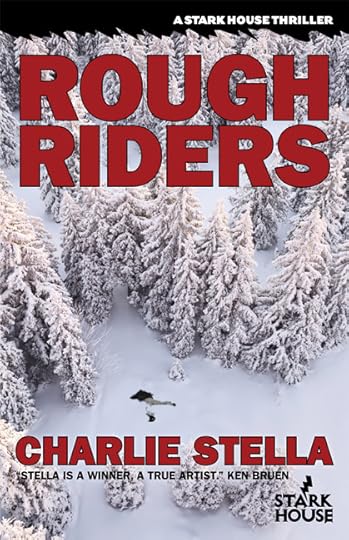
Charlieopera has left a new comment on your post "Noir: The Marxist Art Form BY BARRY GRAHAM":
“Both book and film show criminals as working stiffs, and so get to the real heart of the crime story.”
I can't tell you how many street guys I used to pal/work with were nothing more than working stiffs (myself included) ... guys looking to pay their mortgages/rents/send their kids to a baseball game/buy Christmas presents/pay for 2 (or 3) households, etc ... some had other options, most didn’t. They could eat shit from some company (via middle management, etc.) or they could take a risk (somebody say entrepreneur?) and do whatever they had to do ... almost none of those guys wanted to climb the crime ladder (become made guys or anything else that brought on exposure) ... many (like myself) were working 2nd legit jobs (or their criminal activities were 2nd jobs--but remember, hawking hats and umbrellas without a permit/license is considered criminal activity and I knew plenty of guys and gals doing exactly that on the street to earn enough to make their nut) ... I had a union job for 10 years, but when my first marriage fell apart and I had to provide for 2 (and later 3 households, because my old man stopped paying my mother), I worked 2 and often 3 legit jobs and could barely make ends meet (working 7 days a week will burn you out faster than you think, and it will leave you one angry MF’er). It wasn’t rocket science for me to head where the money was. Once I could earn on the street, the chip I already had on my shoulder grew (as regards working in the legit world). My first novel, Eddie’s World, is mostly fiction ... except the guy who gets fired (for a different reason than in the novel) decides to take some robin hood revenge (because the owner was an arrogant piece of work and Eddie had the balls to and desire to put one up the arrogant SOB’s ass). Eddie’s legit job was word processing ... enough said.
Once I left the crime side of things (and the money--and it was a very tough adjustment financially), I returned to a slave situation (it is what it is). I don’t kid myself ... if/when I leave this job, I have to find another just like it. That’s what I’m free to do.
Nobody in America should be shocked at what people do to survive. We continue to allow 1% of the population to gather OUR collective wealth off OUR backs, and yep, shit’ll happen. And, yes, literary fiction is just another genre (no matter who says it isn’t) ... and as much as I enjoyed Jonathan Franzen’s Freedom, it wasn’t what I’d call a general reflection of America. Franzen himself claimed “it's possible you are freer if you accept what you are and just get on with being the person you are, than if you maintain this kind of uncommitted I'm free-to-be-this, free-to-be-that, faux freedom” ... yeah, right, exactly ... in a capitalist economic system, the vast majority of us are free to be slaves.
Scalisi, et al, in Eddie Coyle were after big scores that might allow them to coast for a few years (to be hedge fund managers?) ... Eddie was looking to pay his mortgage and to stay out of the joint (so he could continue to pay his mortgage) ... I don’t know many hedge fund managers, but I continue to know many more in Eddie Coyle’s economic situation (behind the eight ball), even if they aren’t aware of it yet.
Many crime novels offer a more accurate depiction of America today (whether they intended to or not) than does much of literary fiction (probably why I enjoy (and am rereading again) something like Last Exit to Brooklyn) and have yet to reread Franzen.
Published on June 03, 2013 08:49
June 2, 2013
Noir: The Marxist Art Form BY BARRY GRAHAM
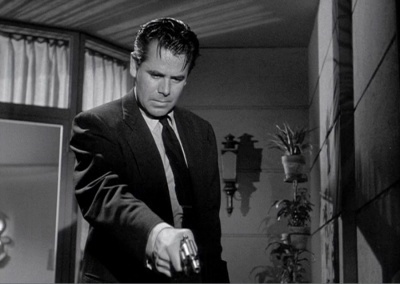
Ed here: My cousin (and fine writer) Terry Butler sent me the link to this very well done piece from here where you can read the whole thing http://www.thebigclickmag.com/noir-th...
Noir: The Marxist Art FormBY BARRY GRAHAM
I got older, and I found noir. Not just a genre, but the most honest depiction of the struggles of real life. And by the time I read Marx, I knew that he was right, because films like Detour and The Big Heat and Kiss of Death and The Hustler and Get Carter had shown me, and the novels of James M. Cain and David Goodis and Jim Thompson and George V. Higgins had told me.
In so-called “literary fiction” (which is just another genre), I mostly read only about the psychological hang-ups of affluent white people whose affluence never seemed threatened. There were exceptions, like the petty-bourgeois drama of George Orwell’s first three novels, and some of Graham Green’s novels. Significantly, Greene separated his genre novels from his literary ones, giving them the subtitle “An Entertainment,” but it is in these “entertainments” that he most seriously reflects class issues.This has been true of noir from the early days, and is true now. Take the 1953 classic The Big Heat, with its blunt acknowledgment of class and poverty. The protagonist, Dave Bannion (Glenn Ford), a cop, and his wife Katie (Jocelyn Brando) discuss how fortunate they are to be able to eat steak for dinner; he tells her that his colleagues don’t believe him when he says they can afford steak, and she tells him that they won’t be able to afford it when they have their second child. Even now, they only have one steak, which they cut in half and share. This poverty, and fear of it getting worse, pervades the film. The reason Bannion’s boss refuses to stand up against police corruption is that his wife is worried about his pension— and Katie tells Bannion that she sympathizes with them.Two decades later, witness George V. Higgins’ novel The Friends of Eddie Coyle, and the magnificent film starring Robert Mitchum. Both book and film show criminals as working stiffs, and so get to the real heart of the crime story.
In any film noir, what do the characters want? It is always the same thing. The characters played by Mitchum in Cape Fear and Night of the Hunter may be evil, but it is not evil that drives them. They are driven by the same need that drives the weary, sad, kindly Eddie Coyle.
Published on June 02, 2013 13:11
June 1, 2013
Bad Ronald; Shield For Murder
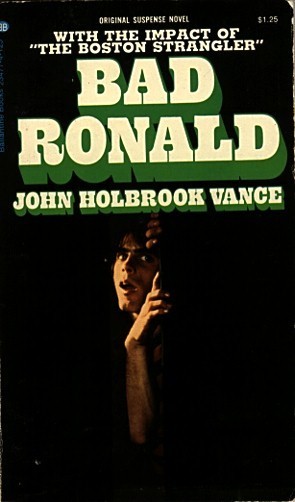
Ed here: Two excellent posts I'd like to recommend--Jerry House on Jack Vance's brooding Bad Ronald (people forget--Vance won a novel Edgar in the early Sixties and Todd Mason on the undeservedly forgotten William P. McGivern.
Jerry House (scroll down): http://jerryshouseofeverything.blogsp...
:For my part, I'd like to recommend his 1973 suspense novel Bad Ronald, published under his full name, John Holbrook Vance. I read this book when it first came out and have never forgotten it. I don't think you will either. In my mind, the novel channels Vance's inner Robert Bloch. The story concentrates on a chilling and unbelievable premise that Vance turns into completely believable novel. Ronald, you see, lives his secret life in a secret room under the stairs in a house where the family that lives there has no idea they have him as a tenant. And Ronald, being Ronald, is not like the other children. In fact, Ronald can be very dangerous.
Todd Mason:
http://socialistjazz.blogspot.com/201...
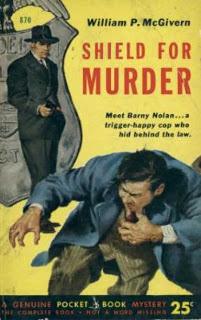
"Donald Kennicott's blurb about how the corrupt cop at the heart of this story was the exception who proves the rule...whether that was a figleaf to deflect criticism or genuine concern...but it's a point McGivern himself makes from time to time in the story itself, though McGivern, already a veteran crime beat reporter on the Philadelphia Bulletin when he published this, also notes at least as fervently that police insularity...blind loyalty to each other in the face of perceived public disdain or hostility, is even more the engine of police corruption and abuse (that and the temptations driven by their license for violence, potentially dangerous work, and low pay). The novel version, published later in 1951, is not one of McGivern's most popular (I hadn't heard of it till just before receiving the Blue Book issue as a contest prize), and perhaps was puffed up from the novella, rather than the novel cut down to fit the magazine...there were two adaptations for a/v media, a 1951 Studio One adaptation on CBS-TV, and a 1954 film starring and co-directed by Edmond O'Brien (with Howard Koch); McGivern would use the title again for a Kojakscript in the 1970s."
Published on June 01, 2013 11:06
May 31, 2013
Paperback Confidential from the great Stark House

Summer Reading Sale!How's that for an attention grabber? Not only did we complete the work on Brian Ritt's fabulous new Paperback Confidential: Crime Writers of the Paperback Era we moved up the release date in order to debut the book at the Pulpfest 2013 in Columbus on July 25th through 28th.

344 pages of classic crime reference, here you can read about groundbreaking writers of all stripes, from Dashiell Hammett and Raymond Chandler to a one-woman fiction factory like Peggy Gaddis, pulp crossovers like Kendell Foster Crossen (creator of the Green Lama and the alter-ego of hardboiled crime writer M. E. Chaber), and legends still working today (Lawrence Block, Elmore Leonard).
PRE-ORDER FOR THE SAME TERMS OUR CRIME CLUB MEMBERS ENJOY FROM NOW UNTIL THE BOOK'S RELEASE IN JULY!
Simply reply to this newsletter with your order and we'll ship you Paperback Confidential as soon as it's in from the printer and cover the freight for FREE. Crime Club members need do nothing, they'll get the book shipped as per usual. Bill Crider calls the book an essential reference for anyone interested in the writers who make reading the old paperbacks so much fun." Gary Lovisi says it's "a must for any fan or collector of crime fiction," and James Reasoner says not only is PC "an essential reference" but "highly entertaining reading in its own right."
By the way, books shipped from Stark House will now come in cardboard wrappers to ensure your books will arrive in the best possible condition. So that's a good thing.
Published on May 31, 2013 12:51
One of my favorites noirs My Name is Julia Ross
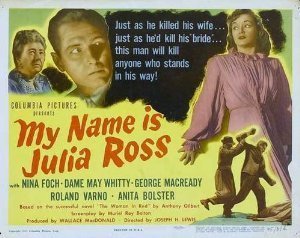 Ed here: THis is the director Joseph H. Lewis at one of his peaks. For the entire piece go here:
Ed here: THis is the director Joseph H. Lewis at one of his peaks. For the entire piece go here:http://cinemastyles.blogspot.com/2013...
My Name is Julia Ross is a great noir from Columbia Pictures, the studio whose noirs always took a backseat to Warner Brothers', not because Columbia didn't do a good job, merely because Warner Brothers did such an exemplary job. That said, at 64 minutes, there's not much to screw up and a lot of chances to get things right while making the screenplay taut and focused. And they do, except...
Actually, there is no except, just an observation.
WARNING: MAJOR PLOT SPOILERS FOR REMAINDER OF POST
.
My Name is Julia Ross was made just one year after Gaslight found its greatest success from all its versions with Ingrid Bergman and Charles Boyer playing the roles of the tormented/insane wife and the suffering husband beautifully. And I can't help but think they changed their approach so as not to seem like a ripoff of the 1944 movie, not in plot but in tone.
In Julia Ross, the titular character, played by Nina Foch, interviews for a job as a live-in house manager/secretary for an old widow and her son, Mrs. Hughes and Ralph Hughes, played by Dame May Whitty and George Macready, respectively. She is hired when they discover she has no family and no friends in the area that might miss her. She arrives at their home that night, settles in and goes up to bed. When she awakens, she's in another bed, in a mansion by the ocean and everyone calls her Marion Hughes. They tell her she is Ralph's wife and everything she thought she knew, about the secretary job, her prior life and even name, Julia Ross, are the manifestations of a crazy mind. She is here to recover and, hopefully, get her sanity back.
Sounds like an incredible twist, right? What's real and what isn't? Is she really Marion Hughes or Julia Ross? Was her life before really just a hallucination? Is it all a plot to drive her crazy? Why?
Published on May 31, 2013 12:41
May 30, 2013
Kill Now, Pay Later
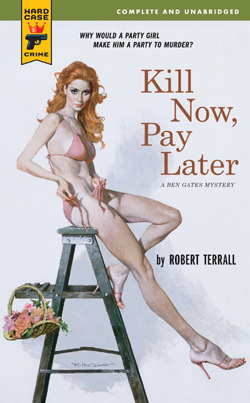
SEPTEMBER 02, 2007In this age of psycho self-promotion (which I'm guilty of myself) and big buck book promotion, it's no longer enough to be a good solid writer. I remember Anthony Boucher calling John D. MacDonald "One of the first-rate craftsmen of crime." And that was a valid assement. JDM wasn't an innovator, a poet, a master psychologist. He was a damned good storyteller who was, in his fiction, true to his time. You can learn a lot about post-war America by reading his early Gold Medals. Those are just a few of the reasons his best work bears rereading today.
I say this because Kill Now, Pay Later by Robert Terrall, the new one from Hard Case Crime, demonstrates how admirable and readable a really fine craftsman can be. Terrall worked under a variety of names and worked in a variety of forms. As John Gonzales he wrote a very good 1951 Woolrichian Gold Medal called Death for Mr. Big. As Brett Halliday he wrote a number of Mike Shaynes that not even Halliday could have pulled off. And as Robert Kyle he wrote three excellent serious crime novels about governmental and police corruption. He even, believe it or not, wrote some good books under his own name.
In Kill Now, Pay Later private investigator Ben Gates is hired to watch over the very pricey wedding gifts bestowed on the mucky-muck couple getting hitched in a mansion. But somebody doctors Gates' coffee and he passes out. A valuable diamond bracelet is stolen. Right off I liked the set-up because it was unusual. And that's what makes this book such a fine read. Just about everything in it is unusual. Terrall is like another Hard Case Crime author, David Dodge. You're in free fall with these guys. You don't know what the hell they're up and that's what makes reading them such a pleasure. Nary a single private eye cliche in the entire book.
Terrall was especially good with dialogue. His sex scenes are really sexy and they're good clean fun as well. His take on a recently graduated parochial school vamp is funny, sexy and, given her gold-digging ways, a little scarey.
No it's not a masterpiece; no it contains no big thoughts; no it doesn't enrich humankind. It's just what it should be, a terrific read.
Published on May 30, 2013 12:03
Ed Gorman's Blog
- Ed Gorman's profile
- 118 followers
Ed Gorman isn't a Goodreads Author
(yet),
but they
do have a blog,
so here are some recent posts imported from
their feed.



